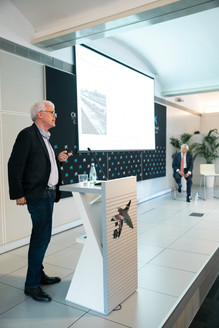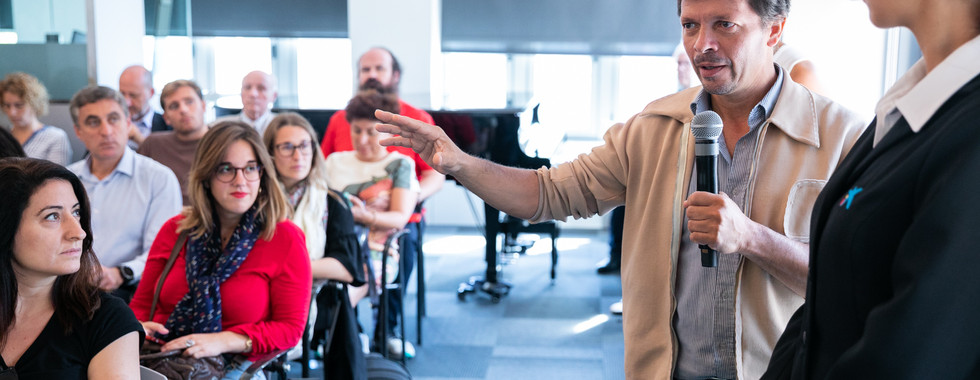The Transition to a Circular Economy Stagnates
- TIC UNESCOSOST

- Oct 12, 2019
- 3 min read
The Report on the situation of the Circular Economy in Spain of the COTEC Foundation for Innovation, developed by the UNESCO Chair on Sustainability at the UPC, ASYPS and the RECNET network and presented on October 7, 2019 at CaixaForum, shows new data on waste management, raw materials, competitiveness and innovation, in addition to collecting success stories and proposing measures to favor the transition to the new economic model. According to the report, with the economic recovery the change from linear to circular model has stagnated and is currently not progressing at the pace that would be necessary.

The transition from the traditional linear model of production and consumption, still dominant, towards a circular economy model, was driven from 2008, during the economic crisis. While the classic linear production model generates waste at all productive stages, as well as in the consumption phase, the circular economy proposes a more efficient use of resources, guaranteeing a more sustainable future. Among other advances, the circular economy minimizes the generation of waste, prolongs the useful economic life of materials, promotes the repair of consumer goods and introduces alternative consumption habits, such as shared use.
The presented report, a new edition of the report that COTEC published in 2017, also coordinated by the UNESCO Chair on Sustainability at the UPC and with the participation of ASYPS and RECNET, analyzes the evolution and the current situation in Spain of the circular economy. It offers new data on waste management, raw materials, competitiveness and innovation, as well as collecting success stories and proposing measures to favor the transition to the new economic model.
CONCERNING DATA
According to the report, it is clear that we are not taking advantage of the economic recovery to move towards a more circular production model, that is, more efficient and sustainable. The data in the report reveal a setback in the main indicators, although not everything is bad news, at least the circular economy is increasingly popular among the population.
The report reflects that Spain is below the European average in waste generation, but this value began to grow in 2014, while it has remained stable in the rest of the continent, which invites measures to avoid reversing the trend.
Regarding the treatment of these wastes, the discharges represent 54% of the total volume in Spain (the rest is divided between incineration, recycling and composting), more than double the average of the European Union (24%) and far from the target set by the European Commission for 2030 (10%).
With the economic recovery the change of model has stagnated and at present it does not advance at the pace that would be necessary. This is the main conclusion drawn from the Report on the situation of the Circular Economy in Spain.
Spain maintains, according to Cotec, production and consumption patterns with strong structural rigidities that make it difficult to introduce more circular and sustainable models. Another difficulty for the implementation of the new model is the lack of specific indicators to measure the circularity in the economy.
SUCCESS STORIES
167 detailed cases of success related to the circular economy are detailed in the work, more than three times those that appeared in the 2017 report. Most of the initiatives collected are related to waste recycling, eco-design and new forms of production and product generation.
In recent years, actions and initiatives have been developed in administrations, companies and social organizations, but the implementation of circular strategies is still incipient.
The report highlights the need for political will to favor the transition to a circular economy. The state roadmap will help define stable frameworks, overcome current technical and regulatory barriers, and design specific policies and investments. The report recalls in this regard that the 2030 Circular Economy Strategy proposed by the Government is pending approval.
In this regard, it underlines the importance of the local sphere, due to its proximity to citizens, businesses and workers. This scope of action, however, is still in an incipient stage.
Representatives of the business world shared a round table dedicated to expose and discuss examples on how to finance the circular economy. Esther Rodríguez (Ibero-American Development Bank), Mª Rosario Casero Echeverri (Official Credit Institute), Maite Ardèvol (Agència per a la Competitivitat de l’Empresa) and Carme Sabrí (AgroBank, CaixaBank) participated.

As for the political strategies to favor the transition towards a circular economy, the meeting offered a table with representatives of the administration in which the general director of Biodiversity and Environmental Quality of the Ministry for Ecological Transition, Francisco Javier Cachón; the deputy director general of Information and Promotion of Sustainability from the Generalitat de Catalunya, Josep Planas; the first deputy mayor and President of the Field of Economic Strategy, Work and Promotion of the City of the City of Gavà, Jordi Tort, as well as the president of the Regional Council of Vallès Occidental, Ignasi Giménez.









































































Commenti